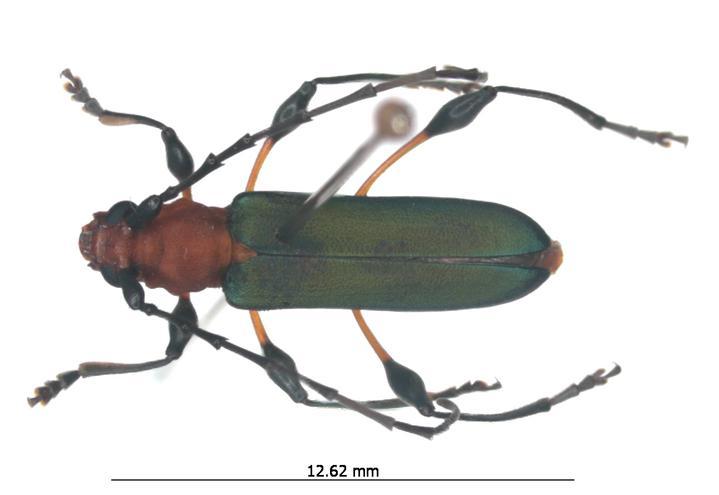2018-05-04 18:05 | Zhejiang News Client Reporter Li Hua Correspondent Xie Ling Gao Baoli Liu Li
A few days ago, the customs officers of Daxie Customs under Ningbo Customs detected an important forestry pest - Nyp hasia pascoei Tianniu - in a batch of woolly olive kernels of origin in Laos, which was intercepted for the first time at a national port. At present, the relevant logs and containers have been treated accordingly according to regulations.

The batch of logs was loaded in containers, a total of 6 containers, shipped from Vietnam, and 2 containers were selected by the customs for inspection in the early stage. In the process of implementing inspection and quarantine, customs officers found a large number of small hilly white insect powder and traces of borer insect pest damage in worm holes, and intercepted a large number of beetles and Tianniu larvae. In view of the serious epidemic situation carried by the batch of logs, the customs officers immediately increased the proportion of spot checks, and the other 4 containers of the batch of logs were also opened for inspection, and 1 adult Tianniu was intercepted, and more than 10 live insects of long beetles and fire ants were intercepted. After identification, it was confirmed that the intercepted live insects were Nyp hasia pascoei adults, quarantine pest trichophyllum bispinnon beetle and general pests bispinnon beetle, Tianniu subfamily larvae, fire ant adults.
According to reports, Southeast Asia is one of the main sources of tropical hardwood wood in China, tree species are mainly used to create furniture or floors and other interior decoration for woolly olive kernel wood, rubber wood, broad-leaved yellow sandalwood, Laos red rosewood, etc., but because of its location in the tropics, rich biological population, and relatively backward economy and management, the effect of pest treatment fluctuates greatly, so the risk of entering Southeast Asian wood carrying various types of harmful organisms is high. In view of the above situation, Ningbo Customs will actively do a good job in the inspection and removal of wood at the port to prevent the introduction of harmful organisms.